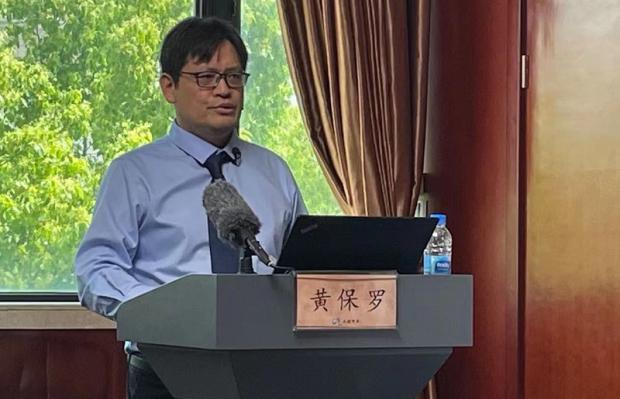Professor Paulos Huang delivered a lecture titled "Martin Luther and Soul Care", the second one in the series "Martin Luther and the Third Enlightenment."
A series of lectures were held in in Shanghai Library in late April to explore the relationship between Martin Luther and the Third Enlightenment.
Professor Huang, director and distinguished professor of the Sino-European Center of Shanghai University, talked about the anthropology of Luther and the purpose of soul care, which was Luther’s lifelong mission, on April 27.
Professor Huang first explained the anthropology of Luther from the holistic "humanology" of Hebrew creation theory. He said that Luther believed that besides flesh and spirit, human beings had souls, which combined flesh and spirit and included reason, knowledge, wisdom, emotion, will, and wish.
Regarding Luther as an engineer of the human soul, the professor shared that Luther’s lifelong mission was to care for the soul, not only to save his own soul, but also to help others.
The reason why Martin Luther paid attention to soul care was because of his own soul suffering, including arguments, accusations, impeachment, protests, appeal, complaints, anxiety, and pain. Prof. Huang said that Luther was suffering from his inability to achieve perfect holiness by his own power. God is holy, but he himself experienced melancholy in all kinds of things, as God’s righteousness made him fear, suffer and unable to gain confidence.
Luther feared God’s punishment, due to the conflict between the insurmountable evil in the heart and the sanctity of his 'God’s servant' status. Luther later referred to this difficult feeling as anxiety, which made people feel that God did not love them, for their evil was beyond remedy. It made Christians feel so sinful, doubtful and anxious that God could not help them.
Emphasizing conscience and confidence, Luther once said, "Saving one person from despair is worth more than a hundred kingdoms."
At the same time, Huang also compared Martin Luther's and Wang Yangming's understanding of conscience. He analyzed that the two shared the same view about ontology, as they both believed conscience was the foundation for knowing truth (God) and the driving force for the pursuit of sanctification. But there were differences in practice. Wang Yangming, king of Philosophy and master of the mind in the time of Luther, optimistically believed that people could be sanctified by their own efforts. Meanwhile, Luther pessimistically believed that only the Holy Spirit could help people become holy.
Huang then pointed out the purpose of Martin Luther’s soul care. He said that the goal of Martin Luther’s soul care was to gain freedom: freedom as a human being different from animals, freedom as a member of society, and freedom to be a just, holy and perfect creature.
Finally, the professor mentioned that Martin Luther believed "forgiveness", rather than "hate", was the solution to people’s bitterness.
The serial lecture topics were respectively "Martin Luther and the Third Enlightenment", "Luther and Soul Care", "Luther and Reason", "Luther and the Paradox", "Luther and Liberalism", "Luther and Conservatism", "Luther and the Unity of Man and Nature (or God) ", "Luther and the Law", "Luther and Philosophy" and "Luther and Humanism."
Huang, a double Ph.D. holder in East Asian Studies and Western Intellectual Tradition at the University of Helsinki, Finland, and the editor-in-chief of the International Journal of Sino-Western Studies and Brill Yearbook of Chinese Theology, focuses on Chinese studies, Sino-Christian Academic Theology, dialogue between Chinese studies and Western studies in the light of globalization, the world's finest Finnish education, and translation of Martin Luther's works.
- Translated by Abigail Wu












